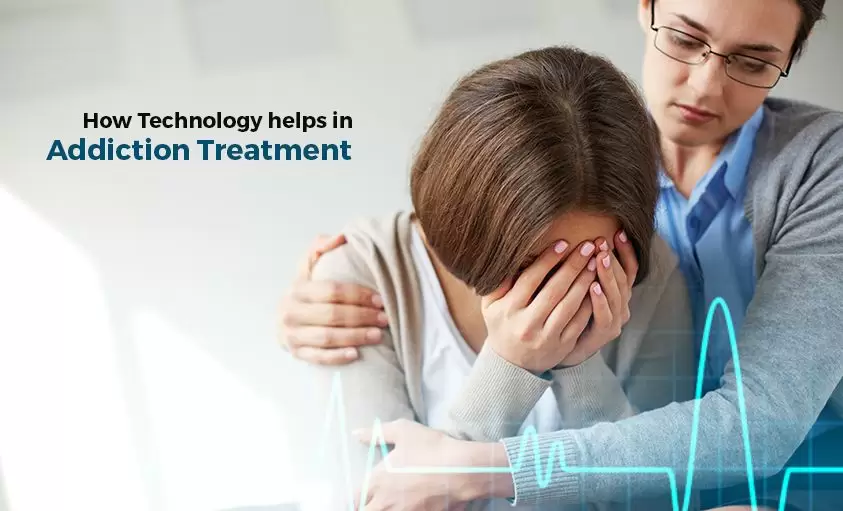
Technology has become an additional tool that helps physicians and patients in treatment management and recovery. It has been found that it makes it easier for addicts to reach out to professionals to get help and also aids in higher rates of long-term sobriety.
Digital Technologies: A Game Changer in Addiction Treatment
There are about 14,500 addiction treatment centers in the United States, while addicts are in the millions. Adoption of technology is a must to be able to reach more patients and monitor their recovery. Also, it has an immediacy factor, doing away with waiting periods for appointments by providing help when it is needed the most. The other factor is that the anonymity can be helpful at first outreach to gain the confidence of an addict to get the help they need.
Digital disruptive technologies also make sense as 54% of the substance abuse cases are among teens and 20 somethings. This group is much more digitally connected and find it more comfortable. While digital solutions can never replace the human connection in counseling, they are good aids as seen in some of these use cases.
1. Smart Phone Apps
Alcohol is the substance with the most addiction cases with 1 in 12 Americans having an alcohol dependence.Apps like the 12 step Guide AA, replicates the Alcoholics Anonymous Model and is for recovering addicts who can’t get to a fellowship meeting. It can be used for any kind of addiction and can track progress and relapses. Apps like AlcoDoid or Daybreak are used to detect an alcohol dependency by keeping a track of how much alcohol is consumed. Skyn is a wearable like a Fitbit that can measure the amount of alcohol in the body at any time.
Tobacco addiction has its own devices to help in rehabilitation. There are many wearable devices available that track nicotine usage, provide alerts and provide inputs to encourage healthier decisions. Android apps that detect arm and head motions that are associated with smoking are used to send voice and video-based messages that aim at strengthening resolve.
Many such apps are available that help build personalized plans for quitting, whatever be the addiction. However, hard drugs like opioids, heroin, cocaine, and methamphetamine are even harder addictions to fight and need professional programs.
2. Computerized Addiction Management Programs
Many addiction treatment centers are now using computerized programs to augment their in-person therapy and treatment. Enterprise-grade EHR software like RehabOne, seamlessly combines electronic medical records (EMR) and substance abuse treatment management in a single-system database. The software takes care of In-Patient (IP) treatment and seamlessly continues the monitoring and treatment at the outpatient level as well. It incorporates cognitive behavioral techniques that have improved its efficacy.
SoberLink is used by some de-addiction centers to treat alcohol abuse. It uses breathalyzers and recovery management to help outpatients maintain their sobriety levels. Sophisticated facial identification technology before every breath test ensure patients stick with the program. Results are transmitted back to a cloud-based recovery management system that is customized with a notification machine for alerts.
Addiction treatment must be long-term treatment as much as any other chronic disease, after-care is all important. Customized software solutions in patient management generally have well thought out modules that ensure patents who leave in-facility care are still provided the support they need.
3. Online Treatment and Support Centers
People with addiction are used to hiding their condition so stepping out to find help might hold them back. The anonymity offered by meeting a professional counselor online can be the first step forward. While patients might have to progress to a facility to deal better with their addiction, the support they get in online programs can continue as a vital link in their journey to recovery. That this is finding a greater acceptance can be seen from the 95 million results that popup in search engines for online addiction counseling.
Technology will never replace physical treatment for de-addiction. Medical analysis and detox are an essential part of treatment. However, the future of addiction treatment will surely see greater use of technology to support these programs and make them more effective.





